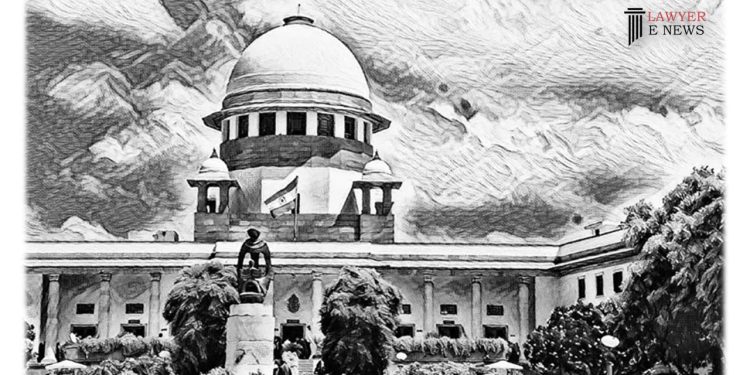-
by Admin
16 February 2026 4:21 AM



In a recent judgment, the Supreme Court of India upheld a decision by the Customs, Excise, and Service Tax Appellate Tribunal (CESTAT), asserting that the customs authorities' rejection of the import invoice price without adequate evidence was unjustified. The case revolved around allegations of under-valuation of imported goods, highlighting the importance of reliable export declarations, statements of involved parties, and proper valuation methods.
The Supreme Court observed, "The issue revolves around the reliability of export declarations, statements of involved parties, and valuation methods." The apex court considered comparable imports and explanations provided by the respondents, ultimately affirming CESTAT's decision.
The dispute stemmed from a discrepancy in the price of imported goods, with customs authorities alleging under-invoicing and evasion of customs duty. A show cause notice was issued to the respondents based on intelligence input. The case examined the relationship between M/s Ganpati Overseas, M/s Arise Enterprises (Hong Kong), and individuals involved in the importation process.
Statements of Mr. Suresh Chandra Sharma and Mr. Yashpal Sharma were recorded under Section 108 of the Customs Act. Initially, both individuals admitted to under-invoicing in their statements but later retracted these admissions, citing coercion. Mr. Yashpal Sharma was arrested and subsequently released on bail.
The Supreme Court also emphasized the significance of the fair and judicious recording of statements under Section 108 of the Customs Act. It highlighted the inadmissibility of statements made under duress or coercion.
One pivotal aspect of the case was the invocation of Rule 8 of the Customs Valuation Rules by customs authorities. The court examined the relevant legal provisions, including Section 2(41) and Section 14 of the Customs Act, and Section 156, which empowers the Central Government to make rules consistent with the Customs Act.
CESTAT's interference with the order-in-original was justified, as it raised concerns about the reliability of initial export declarations due to unattested photocopies. Furthermore, the acceptance of a second set of export declarations by the Hong Kong customs authority without an investigation cast doubt on the evidentiary value of the initial declarations.
In its final ruling, the Supreme Court held, "Customs Valuation - Dispute regarding the assessable value of imported goods - Rejection of the import invoice price by customs authorities - Invocation of Rule 8 of the Customs Valuation Rules without sufficient evidence - CESTAT justified in setting aside the order in the original - Department failed to prove that the invoice price was incorrect - Appeals filed by the department dismissed."
This decision reaffirms the importance of following proper procedures and providing substantial evidence when challenging import values, ensuring a fair and transparent customs valuation process.
Date of Decision: October 6, 2023
COMMISSIONER OF CUSTOMS (IMPORTS), MUMBAI vs M/S GANPATI OVERSEAS
